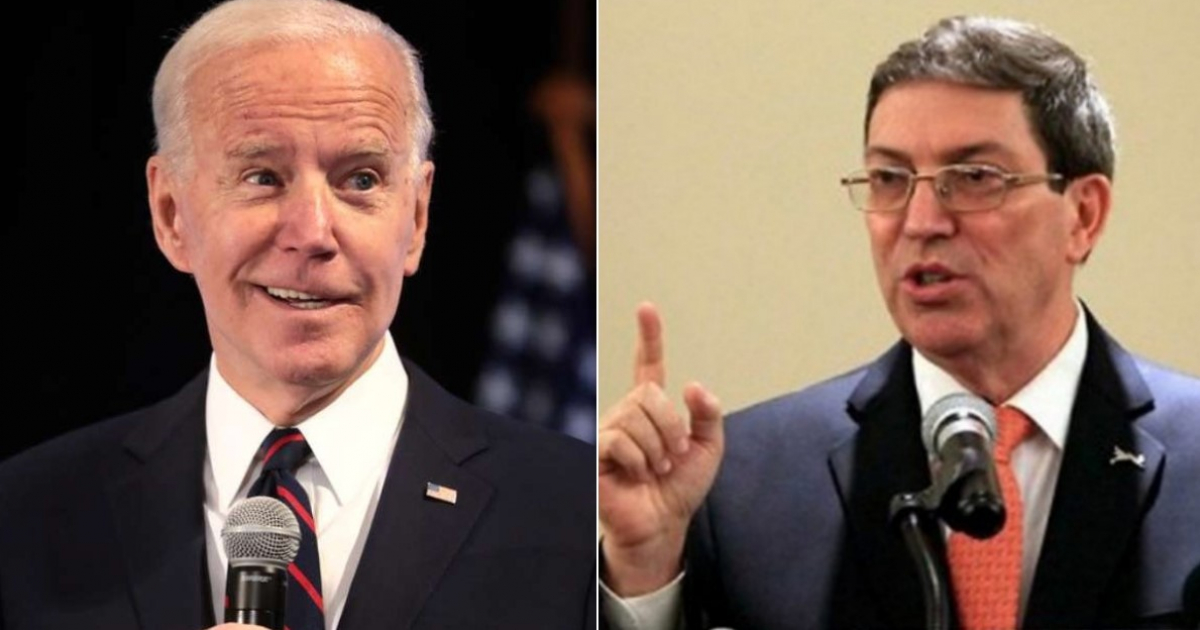
The Cuban government considers the new regulations from the United States aimed at increasing support for private sector entrepreneurs and promoting Internet freedom on the island to be "limited."
The measures, which include the authorization of cloud-based services to facilitate internet communication and the expansion of services for the installation of telecommunications equipment, are criticized by the regime because "they do not touch the fundamental core of the blockade against Cuba or the additional sanctions."
According to the Minister of Foreign Affairs Bruno Rodríguez Parrilla, the measures do not reverse the "cruel impact" of the embargo on Cuban families or the inclusion of Cuba on the list of State Sponsors of Terrorism.
"These measures aim to create divisions within Cuban society, while the U.S. government funds disinformation operations...", added the leader on his Twitter account.
Rodríguez Parrilla shared a statement from the Ministry of Foreign Affairs (MINREX) accusing the U.S. government of addressing only a segment of the population due to its distorted view of the Cuban reality.
According to MINREX, the United States intends to artificially separate the private sector from the public sector, "when both are part of the Cuban business system and society as a whole".
Seeks to place the privately established sector, which has grown under measures taken by the Cuban government, in an advantageous position (...). The same has happened with access to the internet established and expanded by Cuba despite the obstacles of the blockade and restrictions to prevent free access," the statement says.
The government of the United States has been explicit in its intention to use this sector for political purposes against the Revolution, in line with its regime change objectives," the text adds.
Havana emphasizes that both the public and private sectors will continue to suffer the consequences of the embargo and accuses the White House of wanting to punish the Cuban state sector.
The Cuban government will study these measures and, if they do not violate national legislation and represent an opening that benefits the Cuban population, even if it is only a segment, it will not obstruct their implementation," the document concludes.
On the other hand, the Deputy Director General for the United States at the MINREX, Johana Tablada, held a press conference only to repeat what was stated in the official statement from her ministry.
Once again, the United States government tries to adapt its actions not to the reality of Cuba, but to a fiction that has been constructed about the reality of Cuba," he stated.
On Tuesday, the United States Department of the Treasury, through the Office of Foreign Assets Control (OFAC), announced new amendments to the Cuban Assets Control Regulations to increase support for Cuban private entrepreneurs and promote internet freedom on the island.
One of the measures is to allow the export and re-export of Cuban-origin software and mobile applications from the United States to third countries.
Another significant modification is the redefinition of the term "independent private sector entrepreneurs," which now excludes banned regime officials and Communist Party members. The new definition encompasses not only self-employed workers but also cooperatives and other private businesses with up to 100 employees.
An important change is that Cuban private entrepreneurs will be able to access accounts in US banks and carry out financial transactions from third countries (U-Turn transactions) to send remittances and other payments to individuals on the Island.
This revokes a Trump administration regulation that prohibited US banks from processing transactions related to Cuba through banks in third countries. This could allow companies like Western Union to restore their services from their international offices.
U-turn transactions will allow banking institutions to process fund transfers involving Cuba, as long as they originate and terminate outside the United States and do not involve individuals subject to U.S. jurisdiction.
"This measure will improve the flow of remittances and payments for authorized transactions in the Cuban private sector, providing financial support to entrepreneurs and their businesses," the OFAC stated.
What do you think?
COMMENTFiled under: